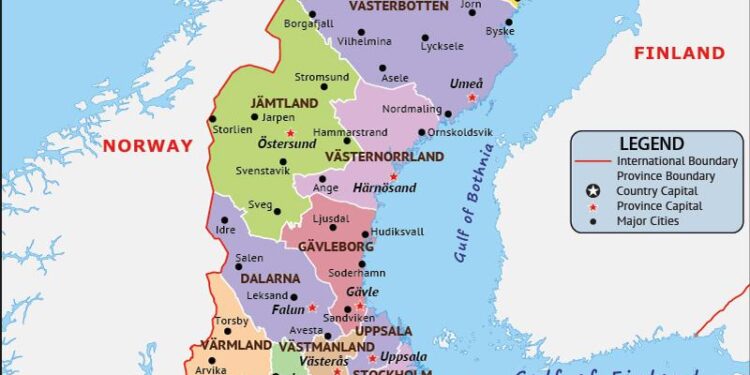In a recent development that has sparked significant diplomatic discussion, Sweden has called on the European Union to cease trade relations with Israel. The move, reported by The Jerusalem Post, reflects mounting tensions over Israel’s policies and actions in the region. Sweden’s push underscores growing divisions within the EU regarding its approach to the Israeli-Palestinian conflict and poses potential challenges to the bloc’s unified stance on Middle East trade and diplomacy.
Sweden’s Diplomatic Campaign Challenges EU-Israel Trade Relations
Sweden has intensified its diplomatic efforts within the European Union, urging member states to reconsider their trade agreements with Israel. The Swedish government argues that continued economic relations with Israel undermine the EU’s commitment to international law and human rights standards. Swedish officials emphasize the need for a unified European stance in response to ongoing conflicts and settlement expansions, calling for a comprehensive review of trade policies that currently benefit Israeli exports.
Key elements of Sweden’s campaign include:
- Proposing stricter labeling requirements for products originating from disputed territories
- Encouraging member states to suspend preferential trade tariffs
- Highlighting the potential economic consequences of continued support for Israeli settlements on EU foreign relations
| Trade Aspect | Swedish Proposal | EU Status |
|---|---|---|
| Customs Tariffs | Suspend preferential tariffs on Israeli goods | Under debate among member states |
| Product Labeling | Mandatory identification of goods from settlements | Implemented but enforcement varies |
| Diplomatic Pressure | Collective EU condemnation and trade reviews | Fragmented positions among member countries |
Impact of Proposed Trade Sanctions on European and Israeli Economies
The proposed trade sanctions spearheaded by Sweden could significantly disrupt economic relations across Europe and Israel, affecting multiple sectors. For European countries, key industries including technology, agriculture, and manufacturing may face supply chain interruptions due to the abrupt cessation of imports and exports with Israel. This move threatens to increase costs for European businesses reliant on Israeli innovations and raw materials, potentially hindering competitiveness in global markets.
Israel, with its robust export economy, particularly in high-tech and pharmaceutical sectors, would likely suffer a sharp decline in revenue and foreign investment. The sanctions might exacerbate unemployment and slow down technological advancements. Below is a breakdown of the projected economic impact:
| Sector | Impact on Europe | Impact on Israel |
|---|---|---|
| Technology | Supply shortages and increased costs | Revenue loss and R&D setbacks |
| Agriculture | Reduced import diversity | Export decline |
| Manufacturing | Disrupted supply chains | Lower production output |
| Pharmaceuticals | Delay in drug availability | Investment reduction |
- European businesses may need to seek alternative markets, impacting short-term profitability.
- Israeli companies could face long-term isolation from key European trade networks.
- Potential political fallout could affect future collaborations beyond economics.
Expert Recommendations for Navigating the Political and Economic Fallout
In response to escalating tensions, experts urge governments and businesses to adopt a measured approach, balancing ethical considerations with economic pragmatism. Key strategies include:
- Engaging in multilateral dialogues to mitigate trade disruptions across affected industries.
- Establishing contingency plans that prioritize supply chain resilience without compromising diplomatic positions.
- Increasing transparency with stakeholders regarding the political contexts influencing trade policies.
- Monitoring policy shifts closely to adapt investment portfolios and contractual obligations accordingly.
Economic analysts further recommend prioritizing sectors less vulnerable to sanctions while encouraging governments to provide support for companies caught in the crossfire. The table below outlines the anticipated impact on various sectors within the EU market:
| Sector | Impact Level | Recommended Action |
|---|---|---|
| Technology | High | Diversify suppliers, increase R&D investment |
| Agriculture | Moderate | Identify alternative export markets |
| Manufacturing | High | Implement cost optimization strategies |
| Financial Services | Low | Strengthen compliance and risk assessments |
The Conclusion
As the debate over Sweden’s call for the European Union to halt trade with Israel intensifies, the coming weeks are expected to bring heightened diplomatic negotiations and diverse reactions from member states. This development underscores the complex and often contentious dynamics within the EU regarding its foreign policy stance in the Middle East. Observers will be closely monitoring how Brussels balances economic interests, political alliances, and human rights concerns in shaping its response.
















